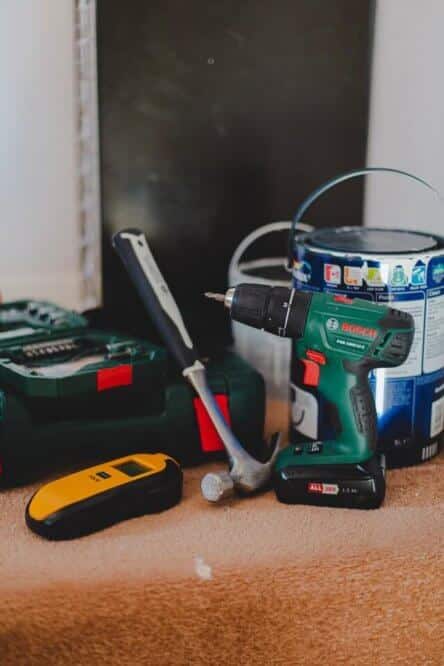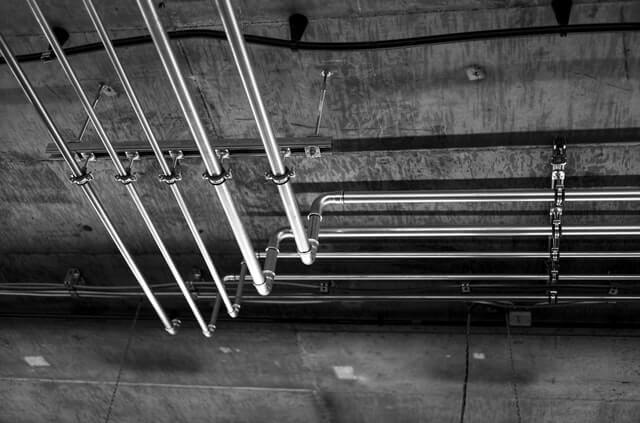The copper pipes in our homes require frequent maintenance. Although they are rather sturdy and resistant, these pipes will require some proper cleaning to keep these features as potent as it was on the day of their installation. Knowing how to clean copper pipes inside and out is key to their longevity.
What needs to be cleaned?
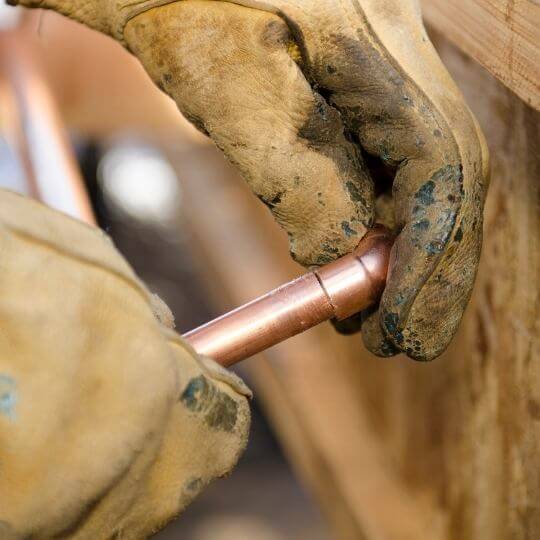
- Limescale buildup
When water carries magnesium and calcium inside of it, it results in limescale building up in our pipes. This limescale can provide a very troublesome source of corrosion. We should aim to clear it out as soon as possible
- Rust deposits
While copper pipes are very slow to rust, they will build up over time. We should aim to clean out rust from both inside and outside of the pipe when it appears.
- Corrosion
Exposed pipes could have corrosion forming on the outside of them, this corrosion isn’t as bad as inside one but it does weaken the pipes against other intrusive sources.
- Debris
This includes any objects that could clog up the pipes and lessen our water pressure. Debris could be tiny rocks that somehow got into the pipes or items we’ve flushed down the toilet. No matter what it is, it should be removed quickly.
- Oxidation
At times, we may notice green oxidation on copper pipes. This is a byproduct of the outsides of our copper pipes being exposed to air and water. It’s very apparent so it shouldn’t be hard to spot and the cleaning process isn’t too convoluted either.
How to Clean Copper Pipes Inside?
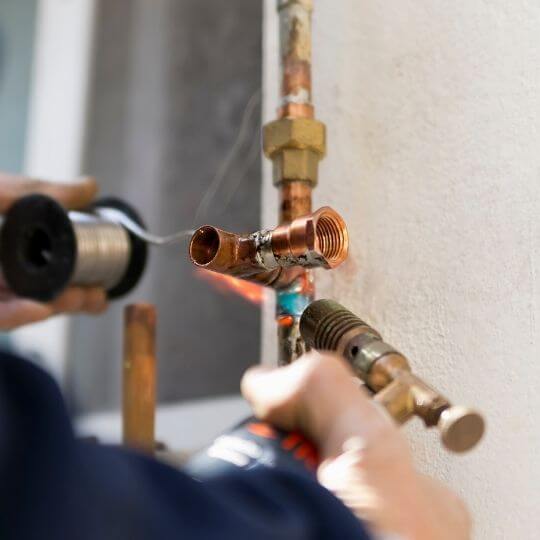
There are many different forms of maintenance to consider from simple repairs to complete cleaning when it comes to copper pipes. Let’s go over all of these different approaches and see how it should be done.
- How to clean corrosion from inside copper pipes
Although copper is one of the most corrosion-resistant elements out there, it is not immune to it. The smaller troubles can build up to big ones when corrosion is involved, resulting in additional costs to our home repairs that we’d rather avoid.
You may be wondering how to clean corrosion from copper pipes. Well in most cases you can’t. Once corrosion has ocurred inside of our pipes, the only way to deal with it is to fix up the leaks.
The solution we see frequently applied to copper pipes to extend their longevity is repair patch kits.
You’ll be required to clean the external part of the pipe before actually applying patches or tape to copper pipes. Not cleaning them will diminish the effect they have on our pipes and potentially have the applied patches peel off quickly.
These kits can be found in local hardware or home improvement shops but can be purchased online as well. Keep in mind that these repairs won’t last indefinitely and are just a temporary solution.
However, external corrosion is a different story. Smaller areas of corrosion can be cleaned up with a certain mix of items. This mix requires white vinegar, baking soda, and salt. Keep in mind that you should mix in an equal amount of each ingredient for the best effect.
After you make it, apply the paste to the place of corrosion. Wipe it off ten minutes later, you should see a noticeable difference.
While this does clean external corrosion, a part of our concern with corrosion will be answered once we learn how to clean copper pipes inside.
- How to clean flux
At times, our copper pipes will require some heavier fixes. These could involve parts of pipes being removed to keep the rest of the system properly operational. However, those same repairs could put our plumbing in a troublesome position if we do not do proper cleaning after the fact.
When working on our pipes, plumbers may resort to soldering. After this process, there will be some flux left in our pipes. Put simply, flux is a cleaning agent that’s frequently used during soldering jobs. The cleaning agent may be used a bit too excessively by the plumbers, leading to a lot of leftover flux.
No matter the amount of it, the excess flux will get carried through the pipes and stick to bits of the interior. This can quicken the corrosive effects of other materials and even help them accumulate easier.
It’s important to know how to clean flux from inside copper pipe to reduce hazards to our pipes.
The actual process is rather easy. Sometimes a simple flush or a stream of hot water will clear flux right out. If that doesn’t work, you’ll need to find something that can reach deep inside the pipes. Any form of long, cleaning tool will work. Put some white vinegar at the end of it to get a really good cleaning effect and get rid of any flux.
- Ways to clean your pipes
Internal health and maintenance of our copper pipes dictate their effectiveness due to most of the threats coming from their insides. Outside issues can occur too but more often than not you’ll require knowledge on how to clean copper pipes inside.
There are more than a few solutions we can employ to battle this issue. Keep in mind that extremely worn-out pipes or dangerously clogged ones should be taken care of before cleaning can commence. We may even need to call in professionals to look into it. Not only due to the seriousness of the task but for the sake of establishing a diagnosis that will tell us why these negative effects keep occurring inside of our pipes.
- Cleaning copper pipes with vinegar
Cleaning pipes with vinegar may as well be the standard method of their maintenance. After all, vinegar is so frequently used for the sake of getting grime, rust, and hard water deposits out of our pipes.
The way cleaning process actually works is by dismantling the pipes and leaving them inside of a container filled with white vinegar. This process will take at least 15 minutes but it should neatly remove any of the aforementioned materials.
Make sure to scrub out any spots that have managed to stay anchored to the inside of our copper pipes even after being soaked in vinegar. A cotton rag usually works, due to not risking damage to the pipes themselves.
Of course, don’t forget to rinse and dry copper pipes before returning them back in place. Not doing so can affect the quality of your water and wetness could help rust or corrosion appear on the outside of the pipe.
- Cleaning copper pipe with Brasso
Another way of cleaning is to use Brasso. Brasso is a cleaning product that can also polish out your items and leave them protected. Although brass is in its name, it can be used to clean chrome, bronze, steel, aluminum, and most importantly copper.
To clean your copper pipes with Brasso, make sure to wash them off first. Then apply Brasso to a clean cloth. Proceed to polish the pipe until it’s clean. Once that’s done, take another clean cloth and clean off any leftovers that have been peeled off by using Brasso.
- Cleaning pipes before and after plumbing fixes
When our plumbing is being worked on more significantly, we may end up replacing some pipes and their fittings. However, if the areas around these connections aren’t properly cleaned we could run into issues soon after fixing previous ones.
That’s why you should learn how to clean copper pipe for compression fitting. It isn’t too hard to do, it may not even require any cleaning solutions. Simply take the emery cloth and clean out the end of the pipe. [3]Make sure to drag the cloth both inside and outside of the pipe’s end, removing debris and dirt.
Once that’s been done, compression fittings and any other type of connecting tools can be applied to our plumbing system without the risk of debris.
Conclusion
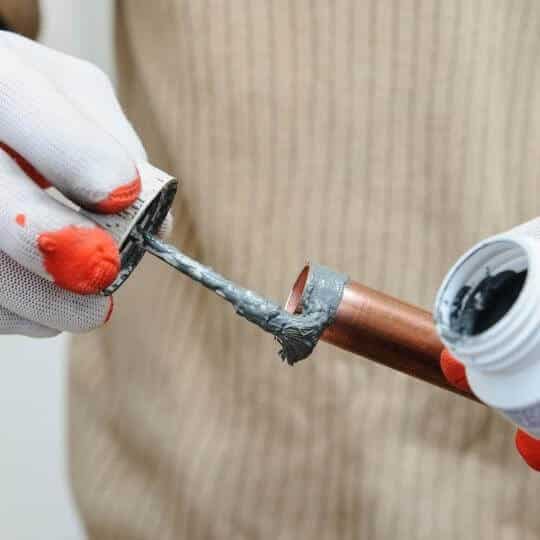
The whole cleaning process can take a while. Depending on the amount of pipe we have, it could take a while to get it done no matter whether we are cleaning it on the inside or outside. Thankfully, there are ample tools to use and cleaning solutions to apply that it doesn’t feel too bothersome to actually finish it all off.
The payback is that we get longer-lasting pipes that won’t need as many repairs later down the line. The constant maintenance will keep us wary of some issues earlier, making them easier to handle as well.
If you haven’t cleaned your pipes in a while make sure to check their current state. They may be way overdue for a cleaning.

Michael Davis is a heating & plumbing expert who currently works as independent contractor in SC. He also writes for Plumbertip.
For almost 10 years he worked on various plumbing tasks across South Carolina.
